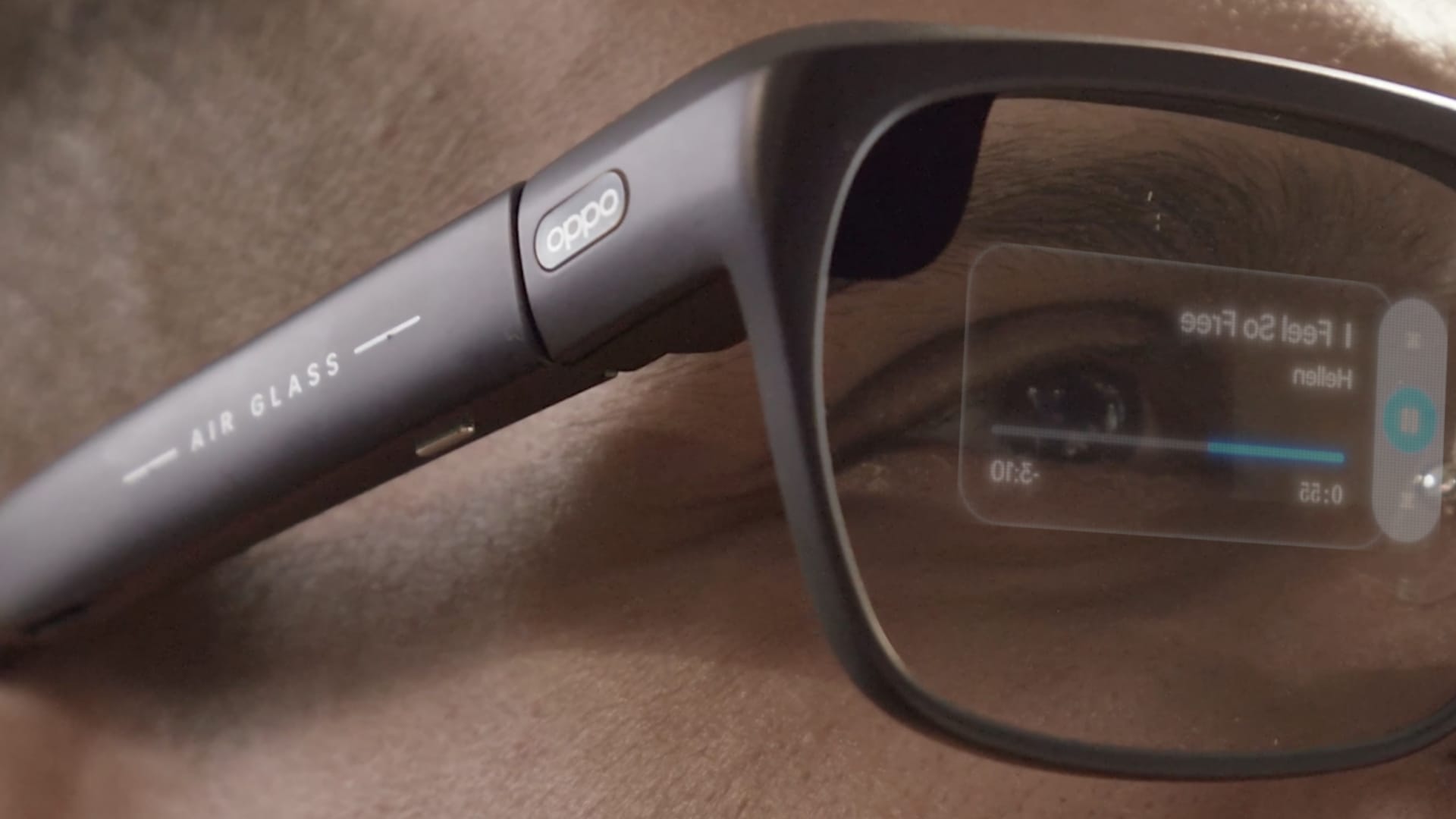The Oppo Air Glass 3 is a prototype set of augmented reality (AR) glasses with a voice assistant.
Oppo
BARCELONA â Oppo on Monday unveiled a prototype set of augmented reality (AR) glasses with a voice assistant, underscoring how electronics giants are trying to infuse artificial intelligence across their products to stand out.
Oppo, a Chinese firm and one of the world’s biggest smartphone makers, announced the Oppo Air Glass 3 at the Mobile World Congress in Barcelona.
They look like a regular pair of glasses with Oppo trying to find a design that can be worn every day as a companion to a smartphone. Since they are AR glasses, users can see digital content imposed over the real-world view they see in front of them. This could be information such as a message or perhaps a map for navigation.
The Air Glass 3 needs to be tethered to an Oppo smartphone. Users can control the glasses with touch sensors on the side of the frame.
Oppo said that its latest AR glasses are equipped with a voice assistant which is powered by the Chinese tech giant’s own large language model (LLM) called AndesGPT. LLMs are AI models trained on a huge amount of data and underpin many of the chatbots, such as OpenAI’s ChatGPT, which have exploded in popularity over the past year and a half.
The voice assistant is currently only available in China, Oppo said in a press release. The chatbot is capable of “performing information searches and conducting conversations to assist users in tasks like planning travel,” Oppo said.
This year electronics makers are talking up the way AI features have been put into their products amid an explosion in popularity and hype around the technology. Oppo is one of the many tech firms in China that has developed its own LLM, alongside others like Alibaba and Baidu.
Meanwhile, other smartphone makers outside of China are relying on their own AI models in a bid to bring new experiences to devices and stand out in a crowded sea of similar handsets.
Virtual reality and augmented reality have been spoke about by electronics makers for several years but haven’t exploded in popularity the way many had thought. Tech firms have taken different approaches. Apple launched the $3,500 Vision Pro this year, a large but very advanced AR headset. Meta through its Quest headsets has also chased the virtual reality market.
But there are many companies who believe lightweight glasses will be the future as they will allow people to wear them every day in a fashionable way. Chinese AR firm Xreal â which is backed by Alibaba â is one of those companies, along with Oppo, which has been investing in augmented reality for several years.
Oppo said in a press release it believes that glasses are a “suitable hardware carrier for AI due to its nature features such as visual and voice interactions, to eventually become the best companions for smartphones in more scenarios.” The glasses weigh just 50 grams.
Since the glasses are just a prototype, it’s unclear if Oppo plans to commercialize them. Oppo’s previous Air Glass 2 was not sold to the public.
But Oppo is trying to show off its tech prowess in a market it believes could be big in the future. Market research firm IDC had forecast just 500,000 shipments of AR headsets in 2023, but believes that could rise to 6.8 million in 2027.

